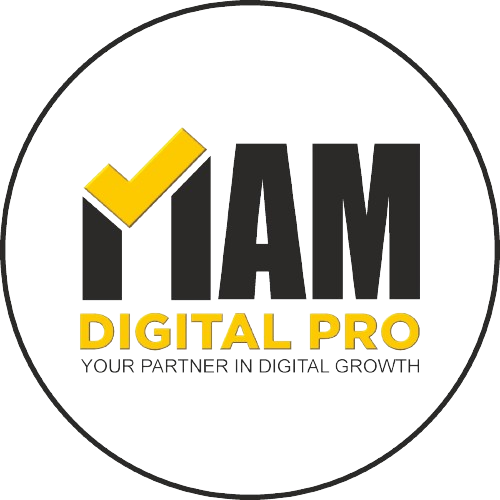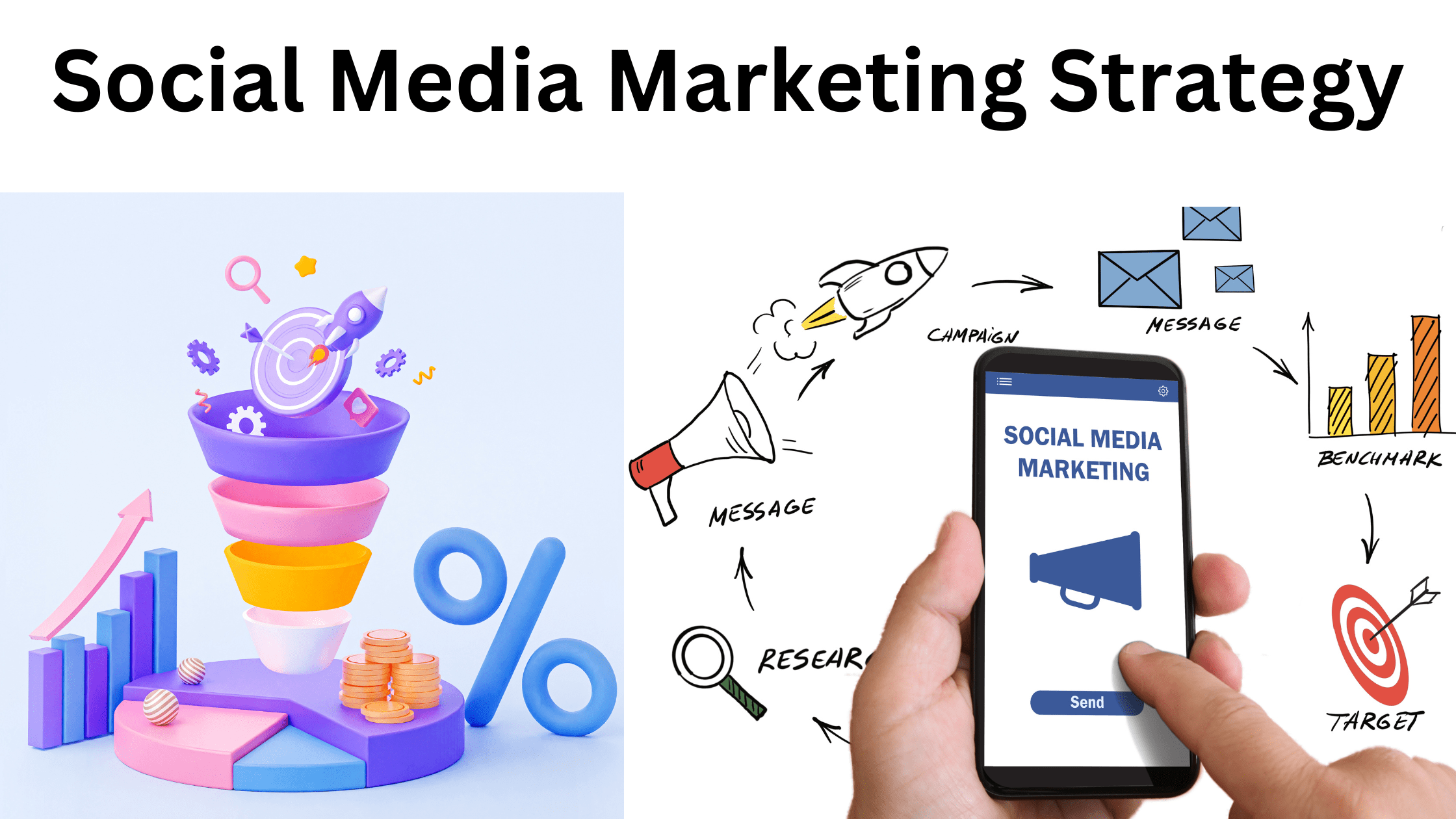Boosting brand awareness online requires a comprehensive social media marketing strategy. With over 4.9 billion people globally using social platforms, social media presents a massive opportunity for marketers.
However, creating social media accounts and occasionally posting will not drive results. It would be best to have a strategic plan to maximize your social media marketing effectiveness. In this article, we’ll discuss why having a social media strategy is essential for your business and provide tips on how to craft an effective strategy.
Benefits of a Social Media Marketing Strategy
Key reasons why having a defined social media marketing strategy is essential:
- Increased Brand Awareness
Strategic social media marketing provides an avenue to repeatedly get your brand and messaging in front of your target audience. Posting engaging and relevant content allows you to build brand awareness and familiarity organically.
- Higher Conversion Rates
With strategic targeting and promotion, social media drives qualified traffic to your website. Optimizing landing pages and clear calls to action can help convert social media traffic into leads and sales.
- Improved Brand Loyalty
Frequent social media engagement helps you build a community and foster brand loyalty. Responding to comments and providing helpful content encourages customers to become brand advocates.
- Better Audience Insights
Analyzing social media metrics and user-generated content provides valuable audience insights you can use to refine your strategy. You can optimize based on interests, demographics, and what resonates most.
- Higher Rankings & Discovery
Social signals play a vital role in SEO. An active social presence with high engagement can improve search engine rankings. Being discoverable on social platforms also allows people to find your brand.
- Competitive Edge
An effective social media strategy sets you apart from competitors in your space. Tailored campaigns around what makes your brand unique draw more targeted customers to your business over others.
Steps to Develop a Social Media Marketing Strategy
Crucial steps to craft a results-driven social media marketing strategy for your brand:
- Set Goals: Clearly define your objectives so you can measure success. Goals could relate to brand awareness, lead generation, engagement, sales, or website traffic.
- Research Your Audience: Gain in-depth knowledge of your target audience’s demographics, interests, motivations, and preferred platforms. Tailor content accordingly.
- Choose Platforms: Determine the right social platforms to engage your audience. Start from Facebook, Instagram, Linkedin etc. Focus on 1-3 core channels rather than spreading yourself thin.
- Analyze Competitors: See what your competitors are doing across their social channels. Identify areas where you can differentiate.
- Create Conversion Funnels: Develop sales funnels to convert social media followers into paying customers through lead magnets, discounts, or retargeting.
- Develop Content Pillars: Plan content pillars focused on your products/services, industry expertise, brand storytelling, promotions, etc.
- Post Consistently: Determine an optimal posting schedule for new content. Post consistently to stay top of mind with your audience.
- Engage and Interact: Respond to comments and questions. Seek out conversations related to your industry. Engage meaningfully vs. automated responses.
- Promote Content: Leverage social sharing, hashtags, tagging, and ads to expand the reach of your content beyond just your followers.
- Track Performance: Use analytics to identify the best types of content and engagement levels. Continuously refine your strategy based on data.

Social Media Marketing Strategy
Common Social Media Marketing Mistakes to Avoid
Key pitfalls to avoid with your social media marketing to maximize success:
- Having no clear strategy or goals
- Posting randomly with no consistency
- Using only one platform and ignoring others
- Not engaging with followers or joining conversations
- Automatically sharing content with no customization
- Putting out sales pitches with no valuable info
- Bad timing with not scheduling posts in advance
- Not tracking performance or using analytics
- Not coordinating social media with other marketing efforts
Tips for Creating Engaging Social Media Content
Quality social media content is essential for capturing attention and driving engagement. Here are tips for creating compelling content:
- Share valuable “how to” articles, guides, or tips
- Create interesting or funny visuals, videos, and stories
- Highlight customer success stories and user-generated content
- Run polls, surveys, and contests to get audience participation
- Leverage holidays, events, and timely topics
- Show company culture and behind-the-scenes
- Promote sales, deals, discounts, and offers
- Answer common customer questions
- Curate and share relevant third-party content
- Tease new products and company announcements
The best social media content combines value, entertainment, interaction, and a glimpse into your brand personality. Evaluating performance metrics helps identify what resonates most with your audience.
Key Takeaways on Social Media Marketing Strategies
A strategic social media marketing plan is crucial for expanding reach, engaging your audience, and driving conversions with your content. Key takeaways include:
- Set specific goals and tailor content to your target audience
- Post consistently across the most relevant platforms
- Promote content through paid ads, hashtags, and shares
- Build community through regular interaction and engagement
- Create fun, valuable content people want to consume and share
- Continuously analyze metrics and refine your strategy
- Coordinate social media with other marketing and sales initiatives
A thoughtful social media marketing strategy and compelling content will help differentiate your brand, highlight your expertise, and attract qualified customers. Stay focused on providing value as you expand your community reach and social presence.
What aspects of crafting an effective social media marketing plan are you looking to focus on? Let me know how I can provide any additional tips or details!
“Do you want to Grow your business with Social Media Marketing? Contact our experts today for help creating your custom social media marketing strategy.”
FAQs
Q 1: How can I allocate a budget across multiple social media platforms for maximum ROI?
When allocating the budget, focus on 1-2 primary platforms like Facebook/Instagram that reach the bulk of your target audience. Allocate about 80% of the budget there for ads and boosted posts. Use the remaining 20% to amplify engagement on secondary platforms like Twitter or LinkedIn through occasional promoted posts. Measure ROI across platforms and shift the budget towards the ones driving the highest conversions.
Q 2: What’s the best way to create conversion funnels on social media for lead generation?
Use lead magnets like discounts or free trial offers to capture emails on social platforms. Create customized landing pages for social traffic rather than sending them to generic homepages. Once you have emails, nurture leads through automated drip campaigns that engage them with helpful content and special offers. Use retargeting ads to reach those who initially need to convert.
Q 3: How can I improve social media video engagement and reach?
Hook viewers in the first 5 seconds with motion graphics, animation, or drama before transitioning into your core video content. Keep videos under 2 minutes for the highest retention. Use strong visuals rather than talking heads only. Include a solid CTA and annotations/cards to drive clicks. Promote top-performing videos through paid ads to expand your reach beyond your followers.
Q 4: What tools are essential for tracking and optimizing my social media marketing performance?
Platform-specific analytics like Facebook Insights should be your primary tool for gauging content engagement and reach. Additional tools like Hootsuite provide unified analytics and performance tracking across multiple networks. Use BuzzSumo to analyze competitors and find trending content topics. Google Analytics assists with tracking website conversions from social referrals.
Q 5: How can I ensure my social media marketing strategy aligns with my business goals?
Audit your current marketing and sales processes to identify gaps social media could fill, like lead generation or brand awareness. Define how boosting metrics like engagement and traffic from social will support revenue and growth goals. Set targets for social based on broader business objectives, not arbitrary vanity metrics. Maintain ongoing communication between social media marketing and other departments to ensure coordinated strategies.

